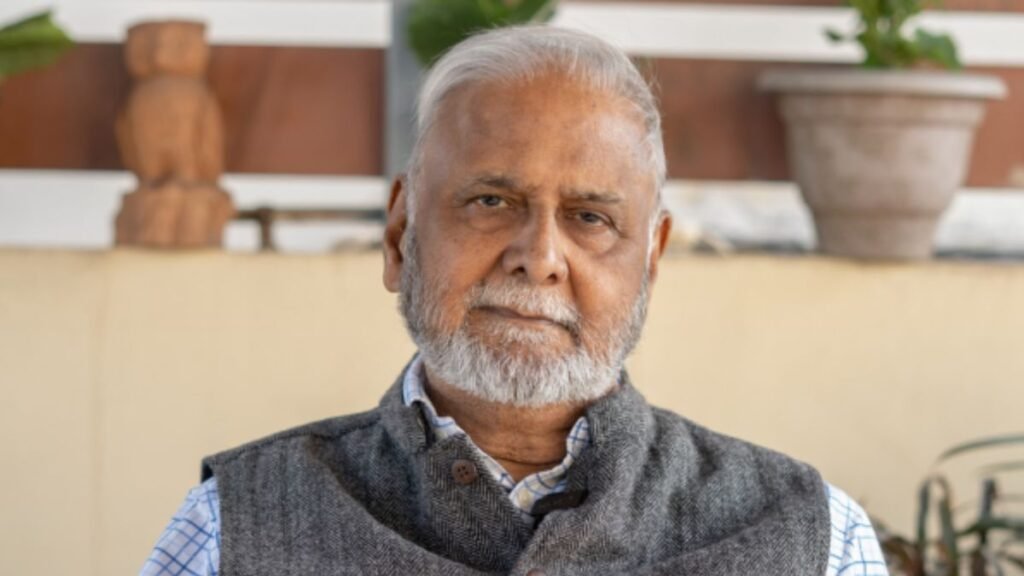Jagdeep Chhokar’s journey as a scholar, reformer, and activist is a remarkable testament to the power of intellect and conviction in transforming democracy. His tireless efforts to make Indian elections more transparent and accountable have left an indelible mark on civil society, political systems, and the way citizens engage with democracy.
A Meeting That Sparked a Partnership
I first encountered Jagdeep Chhokar in 2006, during my tenure at the Election Commission of India. At that time, the relationship between the Commission and the Association for Democratic Reforms (ADR), which Jagdeep Chhokar co-founded, was cautious. ADR had begun challenging the status quo with landmark petitions demanding transparency in elections — a mission that naturally caused unease among officials sworn to uphold the system.
Yet, over time, it became clear that our goals were aligned. Both the Election Commission and Jagdeep Chhokar sought to make India’s democracy not merely participatory, but genuinely informed. What began as a professional interaction soon grew into a lasting friendship rooted in mutual respect for the democratic process.
Haryana Roots and Personal Connections

Jagdeep Chhokar hailed from Patti Kalyana, a village in Panipat, Haryana — a coincidence that brought a personal bond, given my own Haryana cadre background. These connections went beyond geography. As a student at Max Mueller Bhavan, I shared German classes with his sister, Bimla Chhokar (later Bimla Bhalla). Such ties made our collaboration feel natural and almost familial.
Conversations with Jagdeep Chhokar often ranged from electoral law to personal anecdotes. He frequently cited my earlier observation that “electoral rolls are the soft underbelly of the Election Commission,” a line he repeated in hundreds of speeches and articles, highlighting his commitment to thorough reform.
From Academia to the Battleground of Reform
Unlike many who choose comfort over challenge, Jagdeep Chhokar left the predictable corridors of academia to engage in the messy world of electoral reform. A distinguished academic and former dean of IIM Ahmedabad, he applied the same intellectual rigor from his scholarly work to pressing democratic issues.
The story of ADR’s founding is now legendary. In 1999, Jagdeep Chhokar, along with other IIM-A professors, filed a PIL in the Delhi High Court demanding mandatory disclosure of the criminal, financial, and educational backgrounds of candidates contesting elections. The case eventually reached the Supreme Court, and in 2002, a landmark judgment made these disclosures public — a transformative moment in Indian democracy.
A Public Face of Electoral Reform
Jagdeep Chhokar became the public face of this movement, bringing ADR’s mission to civil society, media platforms, and public debates. He combined rigorous data analysis with impassioned advocacy, often presenting findings that embarrassed political parties but empowered citizens. His work made political accountability more than a slogan — it became measurable and visible.
ADR: The Eyes and Ears of Democratic Reform
Under Jagdeep Chhokar’s guidance, ADR became an indispensable force in electoral reform. The organization meticulously compiled and analyzed candidate affidavits, tracked criminalization of politics, monitored campaign finance violations, and published reports that became the gold standard for transparency in elections.
For the Election Commission, ADR evolved from a cautious observer to a valuable ally. Its data-informed policy improvements, strengthened candidate disclosure rules, and nudged political parties toward internal democracy. At public forums, I often shared panels with Jagdeep Chhokar; while our styles differed—his sharper, mine more diplomatic — our commitment to reform was identical.
Transforming Citizen Engagement
One of Jagdeep Chhokar’s greatest achievements lies in changing how citizens approach elections. Today, millions of Indians consult candidate affidavits, examine criminal records, and evaluate asset declarations before voting. This cultural shift — from blind allegiance to evidence-based choice — is a direct result of his work and vision.
By making electoral data accessible and comprehensible, Jagdeep Chhokar empowered citizens to hold politicians accountable. His insistence on transparency and public scrutiny has permanently altered the landscape of Indian elections, reinforcing the principle that democracy thrives when informed voters participate actively.
Intellectual Rigor Meets Public Purpose
What set Jagdeep Chhokar apart was his ability to combine academic rigor with social activism. His insights were never abstract — they were actionable. Every study, report, and intervention he led was designed to strengthen democratic processes, safeguard voter rights, and ensure that political accountability was more than a theoretical ideal.
Through ADR, Jagdeep Chhokar institutionalized transparency, creating systems and practices that continue to guide election oversight in India. The organization’s influence extends beyond elections; it is a benchmark for civic engagement, research-based advocacy, and the ethical practice of democracy.
Taazanow.com- Click Here

